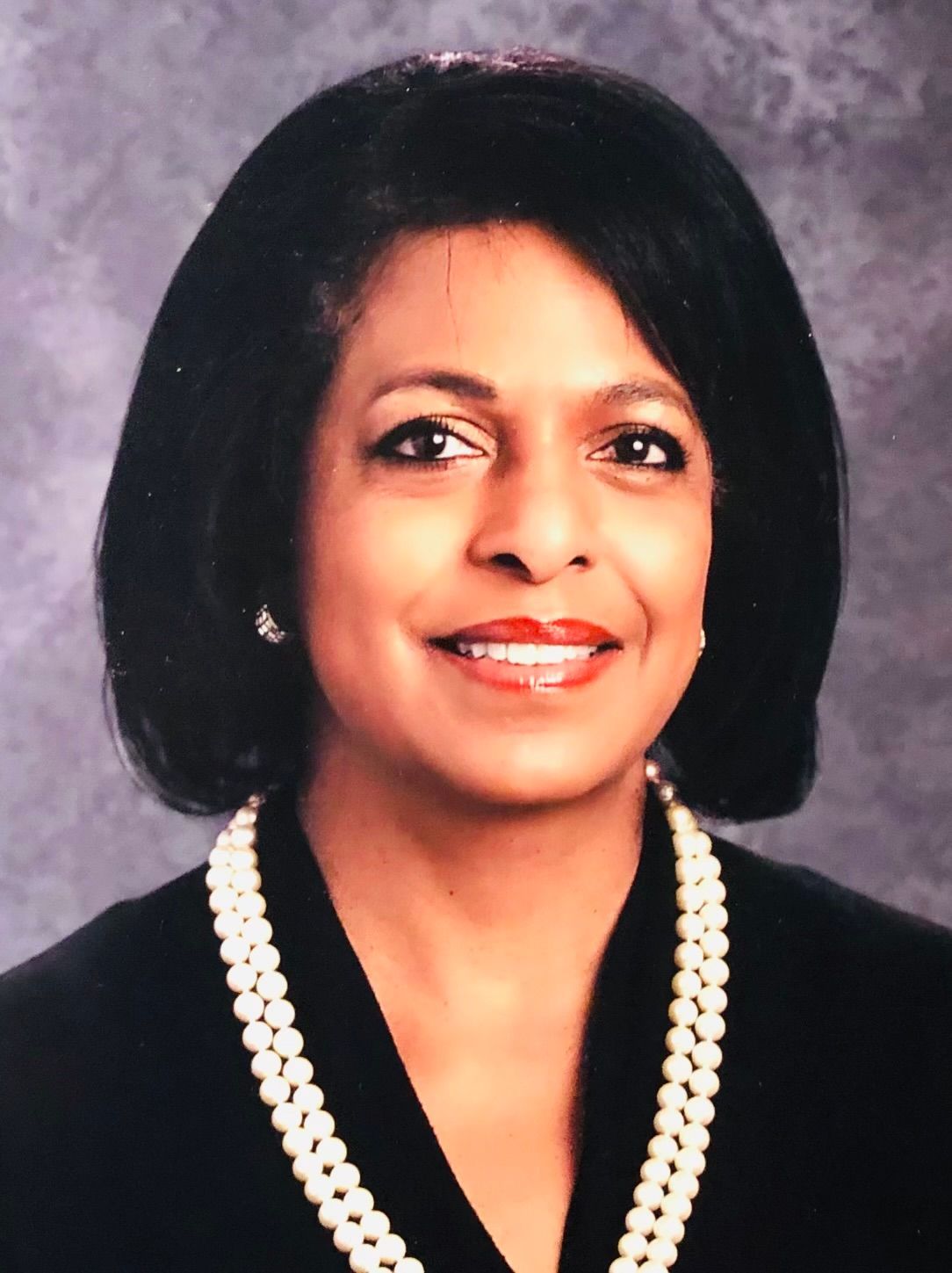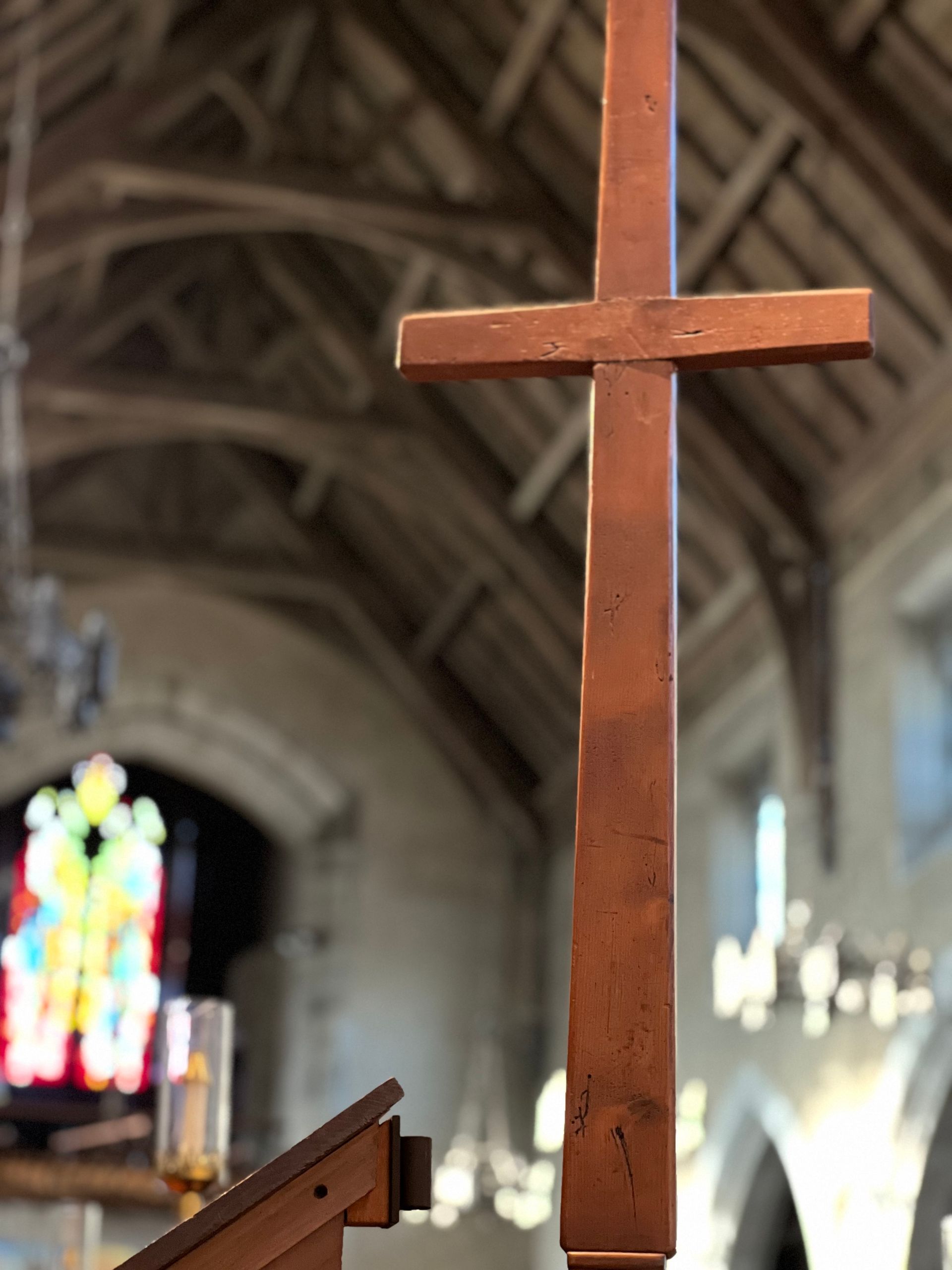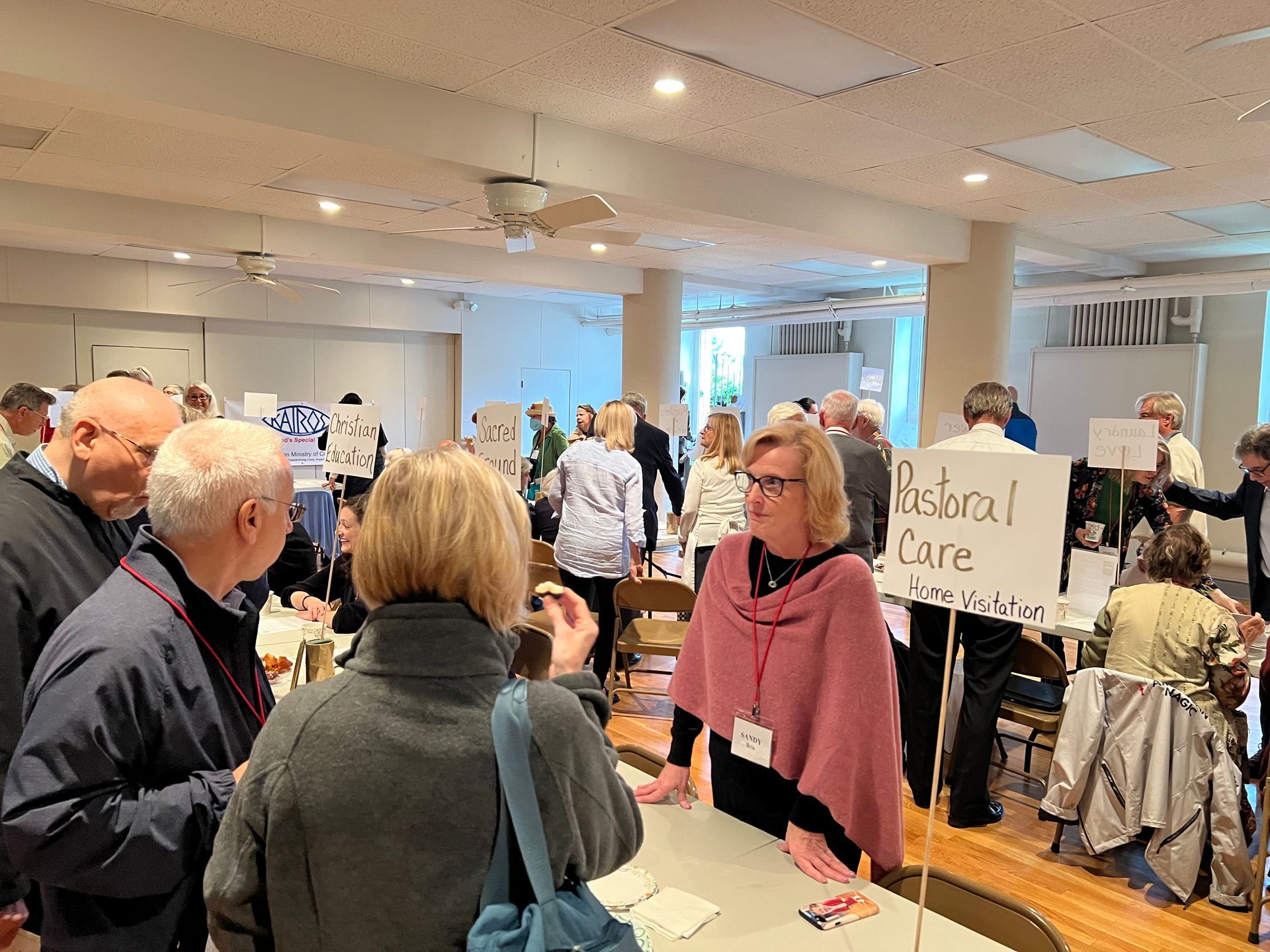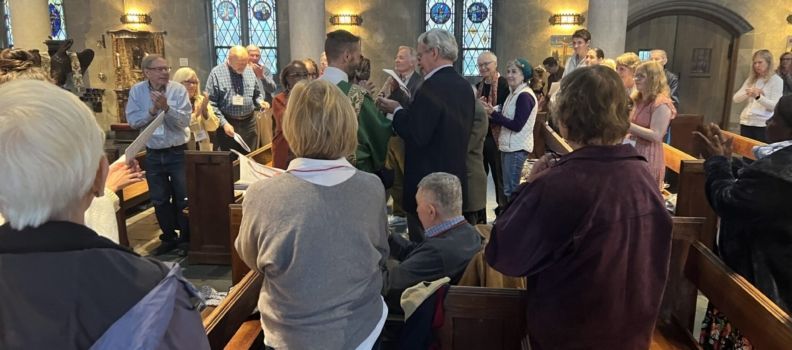Member Resources
Connect with parishioners through the Member Portal. Click HERE to access your profile
Use this
LINK
to log into your St. Paul’s member profile.
If you wish to create a St. Paul’s member profile, contact Marsha Dunn at admin@stpaulsnorwalk.org.
You might also like

By Marsha Dunn
•
March 25, 2025
Dr. Kearney brings a successful perspective of more than 30 years experience in management consulting, executive and inclusiveness coaching, research, philanthropy and education leadership. Previously, she was an Executive Director for the Gallup Institute for Global Well-Being, responsible for planning and management of an annual International Positive Psychology Summit, its Programs and Executive Board. As part of a Gallup and Thurgood Marshall College Fund partnership, she served as Chief Academic Officer for the Thurgood Marshall College Fund’s board and 47 member universities. Also at Gallup, she was Vice President for Social Audits, leading and publishing national surveys on such topics as: Child Discipline, Inclusiveness, Race Relations, Drug Use in America, Gambling, Mentoring and Have and Have- nots. Upon joining the Gallup, Dr. Kearney was trained and certified as a Human Resources Selection Analyst and Consultant, also a Leadership and Strengths group facilitator and coach. Prior to joining Gallup, she was Director of the Executive Leadership Council-Foundation (an association of African American Corporate Executives) in Alexandria, VA, and before, she was an Education Program and Corporate Social Responsibility Manager at The Prudential Foundation. Kearney received her Doctorate and Master’s Degrees in Administration, Planning and Social Policy from Harvard University, a Master’s Degree in Educational Psychology from Boston College, and her Bachelor’s degree from Northeastern University.

By Marsha Dunn
•
March 5, 2025
Women's History Month began as a local celebration in Santa Rosa, California, when the Education Task Force of the Sonoma County (California) Commission on the Status of Women planned and executed a “Women’s History Week” celebration in 1978. The organizers selected the week of March 8 to correspond with International Women’s Day. The movement spread across the country, as other communities initiated their own Women’s History Week celebrations the following year. In 1980, a consortium of women’s groups and historians—led by the National Women’s History Project (now the National Women's History Alliance)—successfully lobbied for national recognition. In February 1980, President Jimmy Carter issued the first Presidential Proclamation declaring the Week of March 8th 1980 as National Women’s History Week. Subsequent Presidents continued to proclaim a National Women’s History Week in March until 1987, when Congress passed Public Law 100-9, designating March as “Women’s History Month.” Between 1988 and 1994, Congress passed additional resolutions requesting and authorizing the President to proclaim March of each year as Women’s History Month. Since 1995, each President has issued annual proclamations designating the month of March as “Women’s History Month.” The National Women’s History Alliance selects and announces the annual theme for Women’s History Month. For 2025, the theme is “Moving Forward Together! Women Educating & Inspiring Generations.” In celebration of this theme, The Justice Ministry invites you to mark your calendars for a special event featuring a screening of the film Six Triple Eight. We are honored to welcome Dr. Sheila Kearney as one of our presenters. Dr. Kearney is the niece of CPT Mary F. Kearney, who served as the Battalion’s Chief of Mail, along with nine other women from Connecticut in the Six Triple Eight. She has been actively advocating for state recognition of these remarkable women through the passage of a resolution honoring their service. Stay tuned for more details—we look forward to celebrating this inspiring history with you! International Women's Day is March 8 and this year the theme is " Equal rights. Equal opportunities. Equal power." This international day celebrates the economic, cultural, political, and social achievements of women. It also calls for action to achieve gender equality. UN Women, the UN organization dedicated to gender equality and the empowerment of women says the theme for this year is a bold call for action for all women and girls worldwide. "As we mark the 30th year of the Beijing Declaration and Platform for Action, the world is deeply unequal and International Women’s Day is a chance to rise and demand action and to deliver on the Beijing Declaration and Platform for Action to make the world equal and better for everyone." Here are six things that the UN suggests that Governments around the world can do to promote gender equality: The United Nations is calling on governments everywhere to act boldly and decisively for all women and girls. Closing the gender gap globally by 2030 will take an investment of $360 billion annually, but the cost of inaction is higher. Here are six actions that can make a real difference, while placing the leadership of young women and adolescent girls in the center of all efforts. 1. For All Women and Girls—A Digital Revolution Closing the digital gender divide could save $500 billion over the next five years. Technology must be a force for equality, not exclusion. Support the Global Digital Compact and enact policies that bridge the digital gender divide, ensuring equal access and leadership for all women and girls in technology 2. For All Women and Girls—Freedom from poverty Nearly one in ten women live in extreme poverty. Public services and social protection expand economic opportunities and security for women. Women also do at least twice as much unpaid care work as men do. Care is the backbone of all societies, and yet is largely undervalued and unpaid. It doesn’t have to be this way—closing care gaps could create 300 million jobs by 2035. Invest in national budgets to strengthen social protection, public services, particularly care services, to give women an equal chance to prosper and fight poverty. 3. For All Women and Girls—Zero Violence One in three women experiences violence in her lifetime. Although globally we have many laws on the books, they are often poorly implemented and investment in prevention strategies is lacking. Adopt, implement and fund national laws and policies that signal zero impunity towards violence against women and support local women's organizations. 4. For All Women and Girls—Full and Equal Decision-Making Power Around the world, decisions affecting women’s lives are still made overwhelmingly by men. This is not just unjust—it is inefficient. Implement laws and policies, apply temporary special measures to increase the number of women in decision-making positions in politics, business and institutions. 5. For All Women and Girls—Peace and Security Over 600 million women and girls live near armed conflict, with conflict-related sexual violence skyrocketing by 50 per cent last year alone. Women’s organizations are the first responders to crises and champions of peace. Yet they remain underfunded and undervalued. Adopt fully financed national plans to increase women's meaningful participation in all aspects of peace and security and fund women's organizations in crises and conflict settings. 6. For All Women and Girls— Climate Justice As the climate crisis and biodiversity loss accelerate, women and girls—especially in rural and indigenous communities— bear the brunt of its devastating effects. They are also at the forefront of solutions. Prioritize women's and girls' rights and leadership in climate action by increasing investment in and their access to green jobs, like care, sustainable agriculture and renewable energy.

By Don Burr
•
March 3, 2025
A note on the history of the wooden processional cross from Archdeacon Don Burr, member of Christ Church, East Norwalk: The "old rugged cross" was crafted by my father, Alan C. Burr, Sr., nearly 40 years ago. The idea was to process with something more "humble" during the season of Lent, before returning to the more ornate processional cross at Easter. Alan and his four brothers grew up as part of St. Paul's on the Green in the 1920s, 30s, and 40s, (Father Emerson and the congregation played an instrumental role in their formation) before Alan's young family found their way to Christ Church, East Norwalk, in the early 1960s. I can remember vividly the crafting of this cross because, once he had it beautifully put together, Pop asked me to use old pieces of chain, hammer heads, nails, and screwdrivers to mark the wood of the cross, making it appear more "rugged" once we applied the stain and finish in his shop. Even today, there is beauty in the old cross. Over the years, the cross has been carried curing Lent; and even on occasions when a young crucifer couldn't bear the weight of the heavier brass crosses. This most recently occurred last month when our seven-year-old grandson, Bradley, served as crucifer for the funeral of my brother, Bo. Thank you for allowing the "old rugged cross" be part of the Lenten season this year for the people of St. Paul's on the Green — I pray they find as much beauty and meaning in it as I have all these years. Peace, Don
Parish Office
- Mon - Thu
- -
- Friday
- Closed
- Sat - Sun
- Appointment Only
Sunday Worship:
Holy Eucharist - 9 & 11 am
Compline by Candlelight -8 pm
Weekdays:
Online Morning Prayer - 8:30 am
Monday & Friday on Facebook
Tuesday & Thursday via Zoom
Holy Eucharist - 11:30 am
Wednesdays





